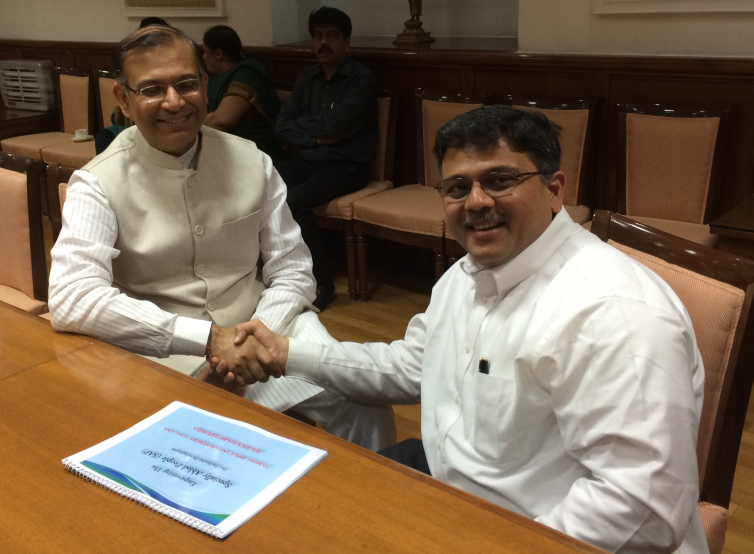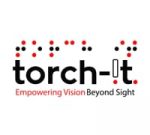
Background: It is estimated to be 7 crore population of SAP as per Planning Commission of India and if we add the Senior citizens also who have age related disabilities, population that needs special help and attention could be more than 10%.
Voice of SAP has developed this comprehensive proposal with 10 suggestions which are based on following 3 principles:
- Focus on Capital expenditure v/s revenue expenditure for sustained strategic impact and not populist short term welfare oriented goals
- Tax savings and pro-business practices which results into savings of welfare oriented spent and bring millions of SAP into main stream economic activities
- Significant increase the budget and resource allocation for the disability affairs, last year’s allocation of less than Rs 500 crore is way too low in a total budget of Rs 180 lakh crore
Measures to boost employment of Specially Abled People in private sector
1. Provide 200% income deduction for the amount of salary paid to the Specially Abled Person. If Salary paid is Rs 2 lakh for the year, eligible expenses will be Rs 4 lakh. This will spur the hiring of SAP especially in the small and mid sized employers who will be looking out for opportunities to manage their taxes and deductions. Reservations will not go long way but monetary incentives will help make it a mainstream business strategy to have X% employees with disability
Reference data: Current incentives of PPF and State Insurance contributions by Govt (instead employers) have not achieved any significant results of employment improvement. As of annual report Ministry of SJ and Empowerment for 2009-2010 data, less than 300 employees were enrolled against stated goal of 1 lakh employees to be hired due to this incentive
2. 100% depreciation on capital expenditure, retrofitting infrastructure to make it accessible, on aids and tools to employees to perform the job. This tax incentive will allow private sector to allocate sufficient funds towards upgrading their office and business infrastructures per universal accessibility standards
Reference Data: Typical cost of creating accessible buildings is 0.5% of the building cost so making toilets accessible, creating ramps, putting elevators etc. can be done if such accelerated depreciation is provided for a limited window of 3 years
3. Special clause, status and preference to win govt business for the companies who have more than 5% employees who are Specially Abled People
4. Promote entrepreneurship, self-employment, family empowerment under NHFDC (National Handicapped Finance and Development Corporation) with a strategic view of 20 years horizon to transform by supporting Specially Abled Person of family as a economic driver of the family instead burden by providing sufficient funding, removing the old days criteria such as total family income per year should be less than Rs 3 lakh (rural) and Rs 5 lakh (urban) – such conditions prohibit promoting the employment cause
Reference Data: Per data, since Jan 1997 till Nov 2012 – total loans given were Rs 212 Crore in 16 years. Absolutely unacceptable outcome (Rs 13 crore lending per year)
Measures to reduce the burden from the family who has a Specially Abled Child
5. Provide standard deduction or 100% tax deductions (section 80DD, DDA, U etc.) on ACTUAL expenses (whichever is higher) related to caring (medicines, equipment, personal care provider etc.) of a Special needs child. Even if family income is high enough, do not restrict the deductions based on that as look at it from different perspective. This provision will spur growth of service jobs of “home care takers” based on required certificate courses for caring such children. Major economic boost.
Reference Data: Current limits are completely outdated, Rs 50,000 and Rs 1 lakh per % disability. Actual expenses are much more for such families and job creation perspective can allow us to take such bold measures
6. Remove limits or at least double the limit to what it is as of now for others on contributing to the PF/PPF and other retirement savings by Specially Abled People and let them build their savings. They will need extra money for their care hence tax break against retirement savings will help reduce govt spent on them
7. Education expense deduction from income – private schools included to promote education hence employment and empowerment of SAP. Provide cash incentives for schools, equipments needed to support it
Reference Data: As of now per 1988 law, Children Education Allowance is Rs 50 per month, completely irrelevant in today’s context and cost of education. Also Less than 5% SAP have passed 12th board exam and that is direct burden to govt for rest of 97% who are not educated, whose care and welfare becomes govt overhead. Instead invest into education that will lead into individual empowerment
Other Measures that Finance ministry can undertake:
8. Overall resources, budget allocation should be 3% of the total revenue expenditure i.e. 54,000 crore Rs. As of now it is only Rs 432.95 crore with Disability Affairs (2013-14) so alarming gap for 6% of country’s population, reason for unacceptable living conditions of 7 crore People with Disabilities
Reference Data: US spends approx 12% of its federal tax revenue i.e. 380 BN$ approx 231,800,000 lakh Rs. Brazil, one of the BRICS country spent 10.6 BN$ in 2009 (66,780 crore Rs) for a much smaller population.
9. Bank Loan Approval for new building and factories subject to accessibility certificate. To ensure every new construction in the country is in line with universal accessibility standards, key measure that finance ministry can adopt is by instructing RBI to make it mandatory that no bank loan will be approved unless the certificate of accessibility is not attached by the loan seeker. The accessibility includes building access, reserved parking, elevators where applicable, toilets etc. should be accessible by Specially Abled People (physically challenged, hearing impaired, visually impaired – all types of disabled people). Licensed architects, accessibility audit firms can issue such certificates
Reference Data: World bank and IMF funded building in India, airports and similar public buildings are fully accessible and it is high time that our banks in India also include this provision as part of its loan approval process
10. Accessibility for banking – retail outlets as well ATMs. Banks should be notified by RBI to retrofit their buildings and ATMs to provide full accessibility which includes safe access to ATMs by physically challenged and visually impaired also. In places where it is not possible, provide training to the banking staff to support Specially Abled People, providing personal assistance with required safety measures.

































Dushyant Parikh
Focused education for every category of SAP is important. Example need to put up school, for smell, taste and foreign language for VHP. For all SAP – working men and women, there is dearth of hostels in cities. Need to make bachelor hostel a right in every city for SAP. This is very critical as these category are below tax bracket. Special fund for Innovations 0n Dedicated small leisure cities run by SAP are economically viable. Should be considered. Fund allocation for spotting and developing Artisanal skills in SAP.
Venkateshmurthy Ayachit
1. Our FM is Mr. Arun Jaitley and not Mr. Jayant Sinha who is our MoS Finance.
2. Disability is neither a curse nor is it a qualification.
3. I don’t see any steps towards boosting employment in the Govt. sector.
4. Have affirmative action rather than reservation. This way, merit will be respected.
Subrata Pramanick
Whatever relief given so far to the SAP is related to Income Tax. But there are hundreds or thousands of SAP whose income is below the taxable limit and most of these people including the Sr. Citizens live with the interest earning of their life’s savings. These people get merely 0.5% to 0.75% more than interest of an abled person when the rate of inflation is at least 5-7% Request Government to give at least 10% interest to this group so that they can somehow live. Government can make a corpus fund to meet this requirement of SAP and Sr. Citizens (who do not get any pension at all)